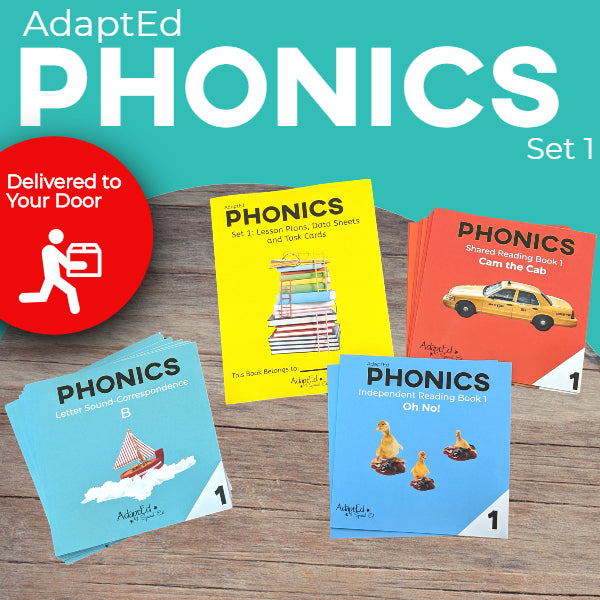Students with intellectual disabilities often face unique literacy challenges. But through the use of phonics and other evidence-based practices, teachers can help their students become better readers. Here are five strategies that educators can use to do just that:
-
Start instruction at the student’s own level. Every student begins at a different point in terms of literacy skills. Phonics instruction should be tailored to meet each student’s needs and build on existing skills.
-
Utilize diverse resources. Research suggests that explicit phonics instruction is most effective when combined with meaningful contexts, visuals, and games.[1][2] Engaging with multiple texts such as magazines, newspapers, picture books, or word walls enable students to make connections between written language and speech.[3]
-
Practice regularly and consistently. Repetition increases fluency in reading and writing.[4] A short practice session once or twice a day can help your student develop stronger literacy abilities over time.
-
Make it meaningful and relevant for students’ daily lives. Connecting phonics lessons to real-world experiences helps create a more engaging learning environment for students with intellectual disabilities.[5]By tapping into the interests of individual learners you can enhance comprehension and bring an aspect of fun into the classroom!
-
Aim for mastery instead of memorization. When introducing phonics concepts to students with intellectual disabilities, it’s important to take a patient approach — focus on getting the concept down before moving onto a new one.[6] Remember to offer encouragement for success as well!
[1] Ormrod JE (2009). Educational Psychology: Developing Learners (7th ed.) Upper Saddle River NJ: Pearson Education Inc.. p318-319
[2] National Joint Committee on Learning Disabilities (NJCLD) (2005). Knowledge & skills necessary for effective teaching in inclusive settings—Prekindergarten through grade 12 Washington DC: Author p12-13
[3] Torgesen JK et al (2001). Preventing Reading Difficulties in Young Children Washington DC: National Academic Press pp152-153
[4] Miller S et al (1995). The effectiveness of remedial education programs: A meta-analysis review Bloomington: Indiana University Press pp223-224
[5] Stretton A & Whelan G (2008). Literacy development in children with Special Educational Needs London UK: Sage Publications pp50-53
[6] Niklas FK & Olszewski-Kubilius P (2010). Methodological issues in studying adolescents who struggle with reading Bloomington IN: Solution Tree Press p105



